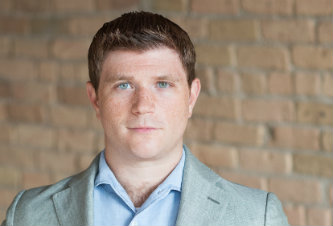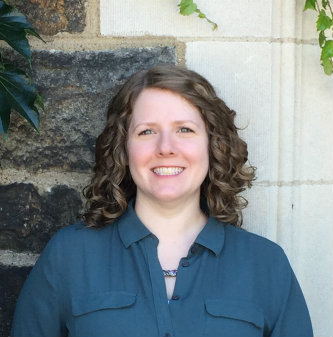New Psychology Studies Predict Likeliness of Belief in Conspiracy Theories
Did Lee Harvey Oswald act alone?
Was the moon landing a hoax?
Did the Obama administration hire crisis actors to stage the Sandy Hook mass shooting to push an anti-gun agenda?
Conspiracy theories about government officials and the institutions they represent are widespread and rooted in U.S. history, according to the co-author of two new social psychology studies that predict the likelihood that someone will believe conspiracy beliefs or theories.
Joseph A. Vitriol, a postdoctoral research associate at Lehigh, and a co-author on both studies, says, "The current political moment is one of volatility and major social change, including increased cultural and ethnic diversity and widespread collective action among members of previously marginalized groups, who are effectively challenging the status quo and seeking change in public policy and political discourse.”
He adds, “For many members of the public, particularly individuals who have benefited from existing social and political arrangements, these developments and changes are quite threatening and can motivate compensatory endorsement of conspiracy beliefs or theories."
Vitriol and Jessecae K. Marsh, an associate professor of psychology at Lehigh, have found that people who overestimate how well they understand politics are more likely to believe that hidden actors or clandestine groups are conspiring in wide-ranging activities to influence important world actions, events and outcomes.
In their research, Vitriol and Marsh asked participants to rate how well they thought they understood a series of public policies. They then asked those participants to provide as detailed an explanation as they could for how the policies actually worked.
After generating these explanations, participants re-rated their confidence in their understanding of the policies.
Marsh explains that the act of trying to explain a phenomenon reveals to participants how little they actually understand about the policies, resulting in a reduction in self-reported understanding ratings.
“Participants who had high levels of confidence in their understanding of public policies after generating an explanation were more likely to endorse political conspiracies, especially if they also lacked accurate knowledge of political phenomena,” she adds.
The findings, detailed in “The Illusion of Explanatory Depth and Endorsement of Conspiracy Beliefs,” were published May 12 in the European Journal of Social Psychology.
“Our findings might suggest that showing people the limitations of their understanding can lead to more informed, evidence-based opinions and beliefs,” said Vitriol. “The good thing is people can do this on their own—by proactively seeking out and exposing oneself to information and perspectives that challenges their beliefs, one stands to gain a more objective and credible understanding of the world."
Endorsing Political Conspiracies
In a separate study published in April, Vitriol found that system identity threat, or one’s perception that society's fundamental, defining values are under siege due to social change, can also predict conspiracy thinking. The study surveys 3,500 adult, U.S. citizens.
The findings, also published in the European Journal of Social Psychology, show that people who agreed with statements such as, “In this country, there is a ‘real America’ distinct from those who don’t share the same values” and “America’s greatest values are increasingly decaying from within,” were more likely to agree with statements such as, “The media is the puppet of those in power” and “Nothing in politics or world affairs happens by accident or coincidence.”
The study, “The Role of System Identity Threat in Conspiracy Theory Endorsement," was authored by Vitriol and University of Minnesota, Twin Cities professors Christopher M. Federico and Allison L. Williams.
“We found that when one feels that society's fundamental, defining values are under siege,” Vitriol says, “it is a strong predictor of a general tendency toward conspiracy thinking and endorsement of both ideological and non‐ideological conspiracy theories.”
Vitriol encourages people to practice humility and to rely upon credible, evidence-based perspectives and diverse sources across the ideological spectrum to inform their understanding of current events and public affairs.
He says, “Challenge yourself with information inconsistent with your assumptions and beliefs, learn about the experiences and perspectives that differ from your own, and remember that extraordinary and overly simplistic explanations for complex events may very well be inaccurate, even if it resonates with your intuitions.”
Posted on:






